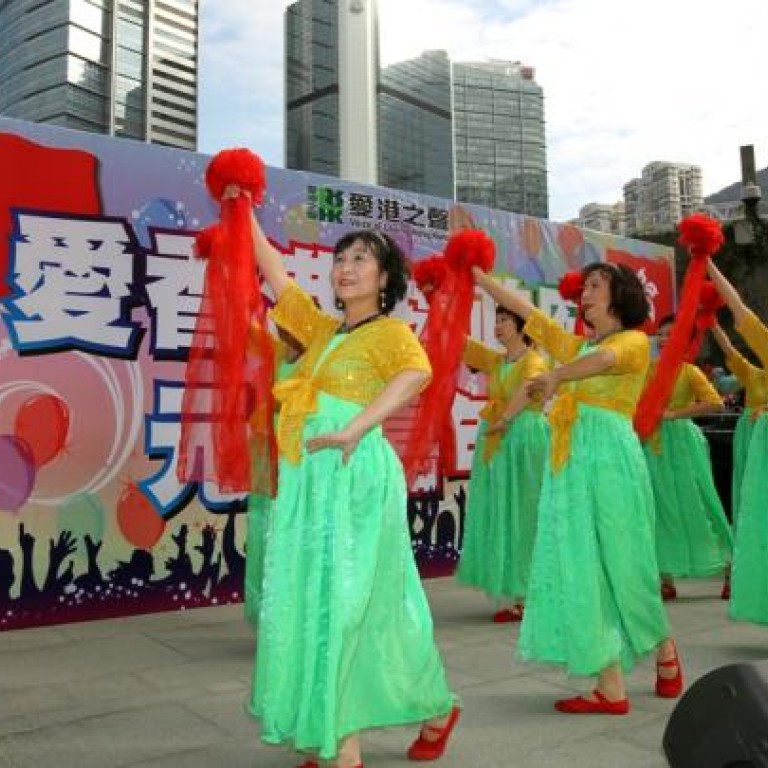
Government supporters cannot hope to win the battle of the streets
Stephen Vines says pro-government protest may have missed the point
Let's be frank - it's easier to muster support for anti-government demonstrations than for pro-government events. Those who oppose governments are more motivated to take to the streets, while those who are supportive merely wish to maintain the status quo and it's hard to motivate them into activism.
In this respect, Hong Kong is much like any other place where anti-government protests are bigger and livelier than those of a pro-government flavour. Previous administrations accepted this fact of life and simply battened down the hatches hoping the demonstrations would pass.
However, anti-government protests show no sign of passing; on the contrary, they are becoming more frequent and occurring all over Hong Kong. This has led to another approach by the pro-government camp, albeit not admitted and strictly on an arm's length basis. It involves attempts to mobilise government supporters, echoing the actions of opponents.
On January 1, the results of this pro-government mobilisation were dwarfed by the turnout of opponents and marred by accusations that participants had to be paid to take part and had to be bussed in to the rallies.
Nonetheless, the pro-government camp proclaimed that their efforts met with great success and, as ever, they insisted that those taking part reflected the views of the "silent majority".
The key word here is "silent", because as long as silence can be maintained, anyone can claim that this keeping quiet is equivalent to support for their position. In other societies, governments are able to back up this claim by pointing to the support they garnered at elections putting them in office. They can claim legitimacy for their actions based on this popular mandate.
In Hong Kong, it is more difficult to make this assertion although, when it suits them, officials like to point to public opinion polls showing support for their policies. They are lucky not to be challenged on the contradiction of this bizarre affection for opinion polls while the administration opposes all moves for an elected government - arguably the best opinion poll of all.
Nonetheless, this new spurt of pro-government activism is interesting because it underlines the increasing politicisation of society and gives recognition to the importance of the streets as a venue for setting the political agenda.
Meanwhile, growing activism on the streets also poses problems for anti-government political parties, which used to be the main conduit for expressions of discontent. In many ways, the initiatives of ad hoc civil society organisations have left them playing catch up.
This was certainly the case in the successful fight against the introduction of national education in schools. Even on New Year's Day, the anti-government forces were effectively led by people outside the political parties, with the notable exception of the increasingly separatist activities of the People Power party.
An intelligent government would be spending time exploiting the weakness of the opposition and searching for ways to shore up its legitimacy among the public.
The Leung administration, like its two predecessors, is a stranger to intelligence. Instead of seizing the initiative by laying out concrete plans for the development of elected government, the best way of securing legitimacy, it prevaricates and fails to convince the public that it has any real interest in progress.
Now the pro-government forces seem to think that a battle of the streets is the one to win. This is mad; the battleground is uneven and they cannot hope to succeed.
They should offer daily prayers to sustain the misguided objectives of the main opposition parties that focus on getting the chief executive to resign instead of exploiting the myriad choices for exposing government ineptitude and failure.
In all of this, there is one thing that should provide comfort - that there is no sign Hong Kong's battle of the streets poses anything like the lethal dangers of battles elsewhere. The people here show an admirable sense of restraint and dignity when demonstrating. Hopefully this will continue.

